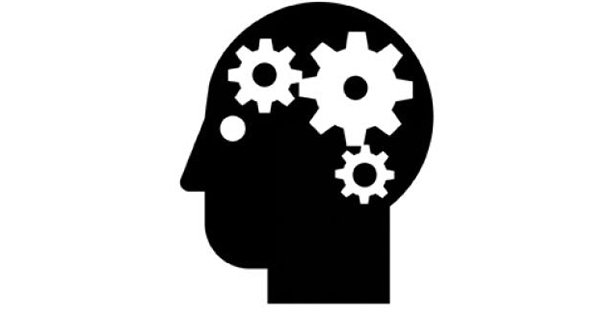From hesitancy in visiting a shrink to openly admitting that one is suffering from depression requires a lot of guts in Goan society. With 10th October being observed as the World Mental Health Day, illness Dr. Charlane Pereira e Rebello, treat a psychologist, catches up with professionals and patients to talk about topics that many consider a taboo and a curse in the family.
Reasons abound for requiring the assistance of a mental health professional, be it depression, eating disorders, obsessive compulsive disorders or perhaps to optimize one’s interpersonal relationships, or to learn the art of assertiveness, or manage stress or cope with the rigours of daily life.
Yet many who need this kind of help simply aren’t getting it in Goa, and it’s high time we spread the truth – there is no shame in illness, and seeking and obtaining help can save people from the depths of despair.
Nisha Gonsalves e Fernandes, a counselor with Fr. Agnel Ashram Institute at Verna says, “Most individuals tend to neglect their mental well-being as they are busy with their lives. At times, they go through a ‘bad phase’ in life and need professional help much beyond the mere confiding to their immediate family members and close friends.”
Dr. Ravindra Agrawal (consultant psychiatrist at Salgaoncar Hospital, Vasco and Manipal Hospital, Dona Paula) adds, “People think that only ‘mad’ people need psychiatrists. There is prejudice against anyone who needs mental health input in any form. These people are thought to be feeble minded, unreliable, unpredictable and even dangerous.”
Dr. Agrawal continues, “As a result of this prevailing stigma, unnecessary delay in seeking professional help adversely affects the patient’s mental health.”
Many patients have second thoughts about booking that important appointment that could improve their quality of lives or perhaps even save a life.
Take the case of Tasima’s son, where timely intervention helped in resolving what could have grown into a much bigger problem.
Tasima (name changed to protect privacy) says, “My son suddenly stopped going to school one day, seemed withdrawn and wouldn’t go out to play even with the neighbourhood kids. That is when I noticed that he might be experiencing some difficulties. I didn’t know what problem he was facing as he loved to study. Despite asking him, he just kept quiet.”
She continues, “I am a working mother and I do admit that I have been busy with my 9 am to 5 pm job. My husband is working overseas. So I went and met one of his school teachers who suggested then that my son should see the school counsellor.”
“That’s when I came to know that my son was being pressurized to smoke and bullied by some of the seniors in his school. Fortunately, everything is okay now,” explains a much relieved Tasima.
Often, when the individual is facing a mental health problem, he or she is rushed to faith healers, who in turn refer families to mental health professionals.
“Many times, the patients are brought to us psychiatrists only when the illness has worsened. The longer the duration of untreated illness, the more damaging it is to one’s brain and directly affects the time it takes to recover as well as its extent,” says Dr. Agrawal.
“I am aware of at least 3 cases of suicide in the last 4 years where the person was obviously very ill; yet he was not given treatment because of such stigmatizing beliefs.”
“One of these cases was a professional from a medical related background who had not sought help for reasons of shame. He tried to self-medicate, his illness worsened and he killed himself in the end,” explains Dr. Agrawal.
“The prejudice is not only among the general public but is also entrenched in various institutions. If an army personnel suffers fromstress/depression or any other illness – he has to hide it or seek treatment in secrecy as his career is at stake. I have seen this among many of my clients from the Navy,” says Dr. Agrawal.
The stigma of mental illness can lead to exclusion from social circles and even job loss, even when the sufferer poses no danger to anyone and fulfils all work demands.
Studies have shown that stigmatizing beliefs lead to poor social support, poor subjective quality of life, low self-esteem, and poor treatment outcomes.
Insurance companies do not reimburse patients for treatment of mental illness, even for chronic illnesses like Bipolar Disorder and Schizophrenia. That means these patients cannot claim medical costs, which only adds to their pain.
The Psychiatric Society of Goa has allocated funds towards mental health promotion in the recently concluded General Body meeting. Efforts are directed at increasing public awareness about various mental health issues. For example, Dr. Peter Castelino is psychiatrist who has worked in increasing awareness about suicide.
Dr. Agrawal says, “I use every opportunity during my interactions with patients and their families to dispel any myths. Often, the successful recovery following treatment speaks for itself. Having given numerous talks in colleges, NGOs, and corporate sector to increase awareness, we can change the negative attitudes of people.”
A book on mental illness in Konkani will be published soon by Goa Konkani Academy; the book is co-authored by Dr. Ravindra Agrawal, Dr. Anil Rane and Dr. Abhijit Nadkarni.
Various NGOs have also been involved in implementing projects in Goa to promote mental health. The NGO Sangath has been working diligently in the area of adolescent and family mental health.
There is much work to be done not just to improve mental health, but to end the blame and the shame.?




